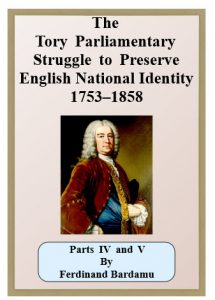Part IV The Collapse of the Anti-Jewish Party, 1847–1858
THE AGITATION FOR JEWISH “EMANCIPATION” WOULD NOT BEGIN AGAIN IN EARNEST UNTIL THE WHIG MINISTRY OF LORD RUSSELL. There was no law against Jews taking up seats in Parliament; rather, they were effectively barred from taking office because of a technicality. In 1847, Lionel de Rothschild, Nathan’s son, was elected to the Commons. Unable to swear the Oath of Abjuration because of the words “upon the true faith of a Christian,” he could not take his seat. A Jewish Disabilities Removal Bill was again sent through the Commons in 1848.
This provoked significant opposition among High Tories because it placed Jews on an equal footing with Roman Catholics. It was passed in the Commons, but rejected in the Lords. Following the Whig failure to get the bill passed through the Lords, Rothschild vacated his seat. He was re-elected in 1850. In consequence, the Whigs introduced into the House of Commons an Oath of Abjuration Bill, which would allow Rothschild to swear a modified oath and take his seat. Although it was passed in the Commons, it was ultimately rejected by the Lords in 1851.
